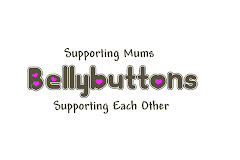Today at Bellybuttons we got plastered!!! Not all of us, just the pregnant ladies.
WHAT!!!! I hear you ask..........No not the kind of plastered you were all thinking.
Today we started making bodycasts of our pregnant ladies, Ashleigh, Desiree, Carleen and Carlie. We are very lucky to partner with our local TAFE college to work on this fantastic project. TAFE teacher Roz will be joining us at Bellybuttons over the next few months to help us with each womans cast. It is a simple (but slightly messy!) procedure. Each woman chose a couple of support people to help them with their cast.

Ashleigh getting ready
We start by covering each womans body with Vaseline


Carlie & Asheigh getting plastered

Erin was one of Carlies support people who helped her with the plaster body cast

Roz and Sophie working on Carleen

Desiree with her cast completed

After they come off the casts need to be reinforced with more strips of plaster. 
Carleen & Carlie work on their body casts
Keep watching as we work on our bodycasts. We will keep you posted!!
While making the bodycasts we realised that womens bodies are very different, but all very beautiful in their own right.
Pregnancy Is a time of change as hormone levels and body shape alter. Being pregnant means you will gain weight. Weight gain during pregnancy is normal and healthy. Whatever your weight was before your pregnancy, and regardless of how much weight you are (or are not) putting on, it is important to have a well balanced diet with plenty of carbohydrates, protein and fresh fruits and vegetables, with not too many fatty and sugary foods. Pregnancy is not an appropriate time to diet, nor is it an excuse to 'eat for two'!
Unfortunately, many pregnant women spend a lot of time and energy worrying about their weight gain. This is no doubt a reflection of our society's obsession with weight and how we look.
However, how much weight you gain is very individual, yet it often becomes the focus of concern for many pregnant women












